Protecting Yourself from Check Washing Scams
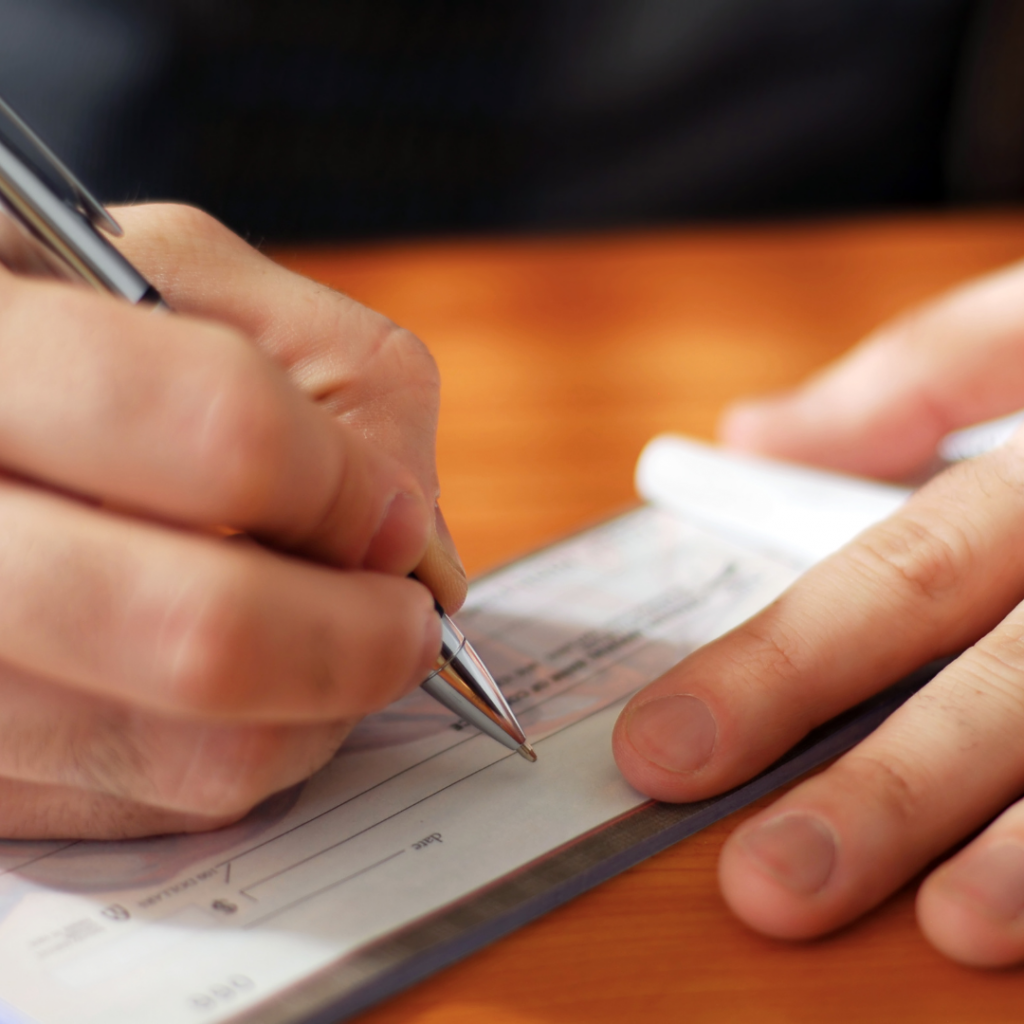
Check washing scams are on the rise, making it more important than ever to protect yourself and your finances. At BankGloucester, we’re committed to keeping our customers safe and informed about potential threats.
Check washing involves altering a check to change the payee’s name and often the amount, allowing fraudsters to cash it for themselves. This can lead to significant financial loss and stress. To prevent becoming a victim, it’s crucial to understand how these scams work and take proactive steps like monitoring your bank statements regularly for any unauthorized transactions. By staying informed and vigilant, you can safeguard your financial well-being.
Check washing is a type of fraud where criminals steal a check that you’ve written and alter it to change the payee’s name and the amount of money. Once they’ve made these changes, they can cash the check, taking money from your account without your knowledge.
The process involves using chemicals, like acetone or bleach, to erase the information on a check. After the check is “washed,” the scammer writes in new details, often increasing the amount of money and making it payable to themselves or an accomplice. The check is then deposited or cashed, and by the time you realize something’s wrong, the scammer may have already withdrawn the funds.
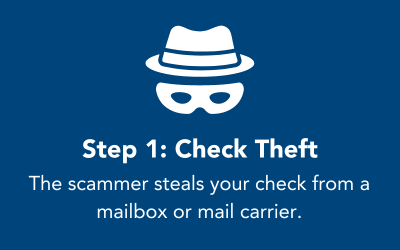
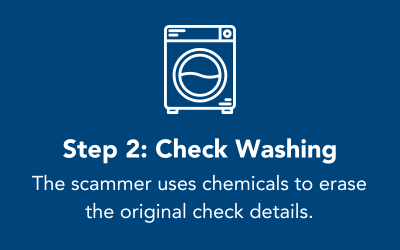
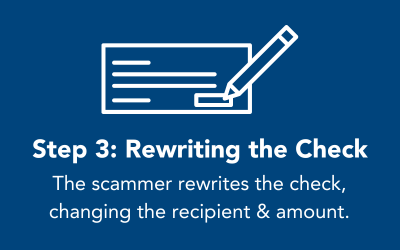
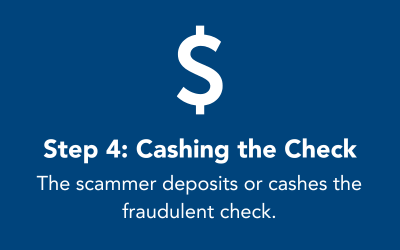
While check washing is a serious threat, there are several steps you can take to protect yourself:
1. Use Gel Pens: When writing checks, use a black gel pen. Gel ink contains pigments that are absorbed into the paper, making it much harder to wash away than regular ink.
2. Avoid Mailboxes for Sending Checks: Instead of leaving checks in your mailbox for pickup, take them directly to the post office or use secure mail drop boxes. This reduces the risk of someone stealing your mail.
3. Monitor Your Bank Account Regularly: Keep a close eye on your bank statements and account activity. If you notice any suspicious transactions, contact BankGloucester immediately at 978-283-8200.
4. Sign Up for Account Alerts: Many banks, including BankGloucester, offer account alerts that notify you of any transactions over a certain amount. These alerts can help you catch fraudulent activity quickly.
5. Use Electronic Payments: Whenever possible, opt for electronic payments instead of paper checks. Electronic payments are faster, more secure, and eliminate the risk of check washing.
6. Be Cautious with Who You Write Checks To: Only write checks to trusted individuals and businesses. If you’re unsure about a payee, consider using a different form of payment.
7. Use Security Envelopes: Security envelopes make it harder for scammers to see the contents of your mail, reducing the risk of theft.

If you suspect that you’ve been a victim of check washing, it’s important to act quickly:
1. Contact BankGloucester Immediately: Call us at 978-283-8200 to report the fraudulent activity. We can help you stop the payment on the check, freeze your account if necessary, and guide you through the steps to protect your finances.
2. File a Police Report: Report the theft to your local law enforcement. This creates an official record of the crime, which can be helpful for your bank and for insurance purposes.
3. Report the Crime to the U.S. Postal Inspection Service: If you believe the check was stolen from your mailbox, report it to the U.S. Postal Inspection Service. They investigate mail-related crimes and can provide additional resources.
4. Review and Close Compromised Accounts: If your account has been compromised, consider closing it and opening a new one. This can prevent further unauthorized transactions.
5. Monitor Your Credit Report: Check washing can sometimes be part of a larger identity theft scheme. Monitor your credit report regularly to ensure no new accounts have been opened in your name.
Check washing is just one of many scams that criminals use to steal from unsuspecting victims. Staying informed is your first line of defense. Here are some additional resources where you can learn more:
AARP’s Guide on Check Washing Scams: AARP offers a detailed overview of check washing scams and tips to avoid them. Read more here (https://www.aarp.org/money/scams-fraud/info-2023/stop-check-washers.html).
Experian’s Article on Check Washing: This article provides insights into how check washing works and how to protect yourself. Learn more here (https://www.experian.com/blogs/ask-experian/what-is-check-washing).
U.S. Postal Inspection Service: The USPIS provides resources and support for those affected by mail-related crimes, including check washing. Visit their site (https://www.uspis.gov/news/scam-article/check-washing).
At BankGloucester, we’re here to help you protect your finances and navigate any challenges that come your way. If you have any questions or concerns about check washing or any other type of fraud, don’t hesitate to reach out to us at 978-283-8200. Your security is our priority, and we’re committed to keeping your financial information safe.
Stay vigilant, stay informed, and take the necessary steps to protect yourself from check washing scams. Together, we can outsmart the criminals and keep your hard-earned money where it belongs—safely in your account.